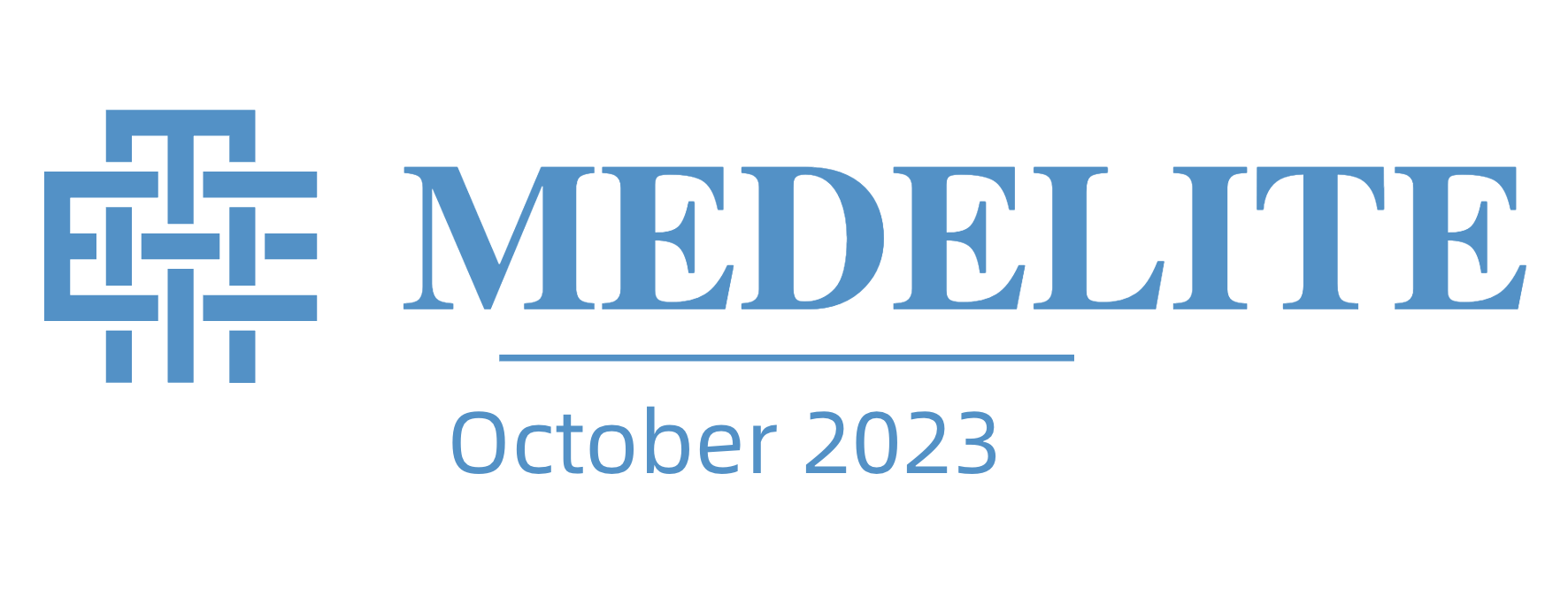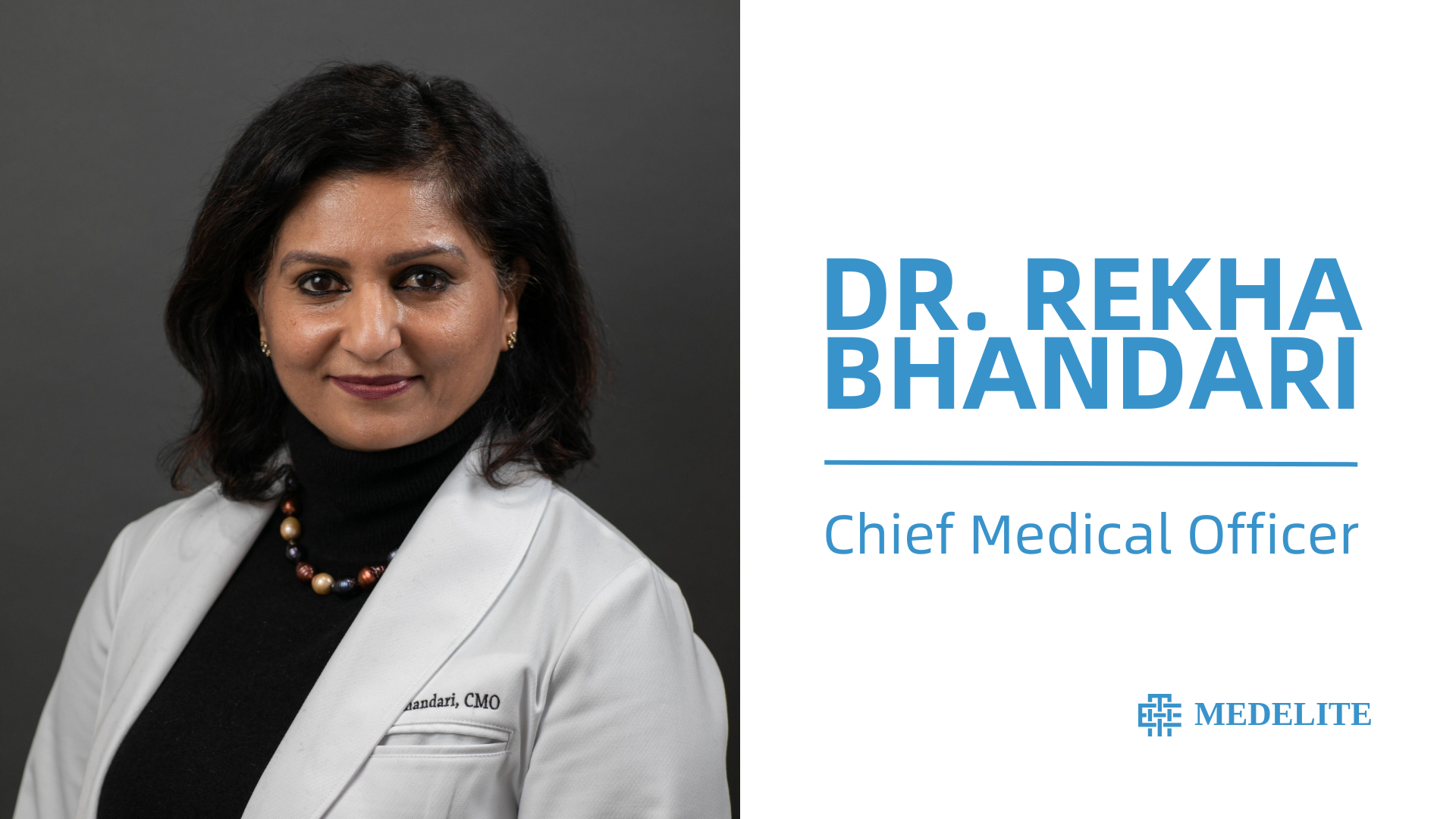
MedElite Looks Back on Breast Cancer Awareness Month 2023
Welcome to the October 2023 MedElite Group Newsletter, your resource for the latest in healthcare and happenings with MedElite. In this edition, we look back on Cancer Awareness Month with the latest developments in the healthcare industry.
This month, we begin by sharing an excerpt from our CMO’s article in Healthcare Business Today, highlighting the growing potential of voice-based AI in healthcare.
Next, we cover some significant industry news, including GE HealthCare’s recent acquisition of a $44 million grant from the Bill & Melinda Gates Foundation. This grant is dedicated to the development of AI-powered ultrasound technology, specifically for obstetric and lung ultrasound scans. We believe that staying informed about these developments is vital in today’s healthcare landscape.
October marked National Breast Cancer Awareness Month, and we want to remind you of the importance of early intervention and preventive care. We provide straightforward guidance on regular screenings, recognizing warning signs, and understanding family history in relation to breast cancer.

MedElite Group CMO Dr. Rekha Bhandari was recently featured in Healthcare Business Today! Click here to read her full article:
Exploring Voice-Based AI In Healthcare
Voice recognition technology has become commonplace in society, with personal assistant programs gaining frequent use across countless mediums. As described in Forbes, AI and ML are increasingly used in healthcare applications to expand clinical efficiency, boost diagnosis speed and accuracy, reduce physicians’ duties, and improve patient outcomes. Healthcare AI can also help with administrative tasks like appointment scheduling and insurance claims processing, freeing up time for clinicians to focus on patient care. Especially during the pandemic, voice AI bots helped to screen patients; for instance, Apple’s Siri guided users through the CDC’s COVID-19 evaluation questions.
As a result of voice-based technology, patients can get prompt answers to their questions about symptoms, therapies, and pharmaceutical availability using smart healthcare voice assistants like Alexa and Google Home. Voice assistants can also offer patients up-to-date information on their mental health; audio acoustics change in response to a person’s health. These audio qualities can help diagnose various physical and mental diseases and conditions. Chatbots—computer programs that simulate and process written or spoken human conversation—also allow people to interact with digital devices as though they were communicating with a live person.
(Click here or the link above to read Dr. Rekha Bhandari’s full piece)

GE HealthCare has secured a significant $44 million grant from the Bill & Melinda Gates Foundation to propel the development of artificial intelligence-powered ultrasound technology, marking a pivotal stride in healthcare innovation. This transformative funding endeavor aims to advance clinical decision support tools catering to obstetric and lung ultrasound scans, primarily targeting underserved communities in low- and middle-income countries.
Caption Health, an entity recently acquired by GE HealthCare for $127 million, will spearhead the development of these cutting-edge AI tools. Caption, as a subsidiary of GE, specializes in harnessing AI to decode ultrasound examination outcomes. Their groundbreaking technology has already gained FDA clearance for early heart disease detection, offering step-by-step guidance to clinicians performing echocardiograms.
With this latest infusion of funding, Caption will forge ahead in creating multiple algorithms for lung ultrasound and obstetric applications, subjecting them to rigorous clinical validation and regulatory approval. These AI tools are envisioned to empower healthcare professionals, even those lacking specialized ultrasound training, to enhance maternal and pediatric lung care, thereby combating the alarming mortality rates stemming from preventable pregnancy complications and childhood pneumonia.
GE HealthCare’s CEO of Ultrasound, Roland Rott, underscores the significance of this grant, emphasizing its potential to expand Caption’s technology reach, thereby facilitating greater access to superior medical care. With ultrasounds playing an increasingly pivotal role in diagnosing and managing various medical conditions, this collaboration promises to be a game-changer, revolutionizing healthcare delivery on a global scale.

National Breast Cancer Awareness Month 2023: Making Preventative Healthcare a Priority
October is National Breast Cancer Awareness Month, a time to reflect upon and spread awareness of breast cancer, which remains one of the deadliest forms of the disease. Early intervention and preemptive care remain perhaps the greatest assets in the battle against breast cancer, making awareness and insight paramount in saving lives.
In this vein, here are a few ways to prioritize breast health and cancer prevention during National Breast Cancer Awareness Month and beyond:
Here are three quick tips for effective early diabetes intervention:

Schedule Regular Screenings
Recurring breast cancer screenings are one of the most common and effective ways to mitigate cancer. Generally, women between ages 50 and 74 with an average breast cancer risk should schedule a mammogram every two years, while those 40 to 49 years old should consult their doctor about potential screenings. Women with a higher-than-average cancer risk may undergo MRIs to gain a more in-depth view of the breast.

Identify Potential Warning Signs
It helps immensely to know the symptoms and warning signs of breast cancer – primarily through regular self-examination. Sudden or abnormal changes in the breasts or surrounding underarms (lumps, skin redness, discharges, new pain, etc.) should always lead to a follow-up with a medical professional, as this early intervention could make a major difference in slowing the disease’s spread. While rare, men can also develop breast cancer and should, therefore, also consider such matters and schedule medical interventions accordingly.

Know Your Family History
In addition to age-related matters, certain harmful exposures, and poor lifestyle choices, family history is arguably the most common cause of breast cancer. The disease can become prevalent in families via inherited genetic mutations, making it crucial for one to know their family’s experiences with recurring cancer – if any – and convey this predisposition to medical professionals when appropriate. This insight ultimately informs a better plan of preventative healthcare for the future.
